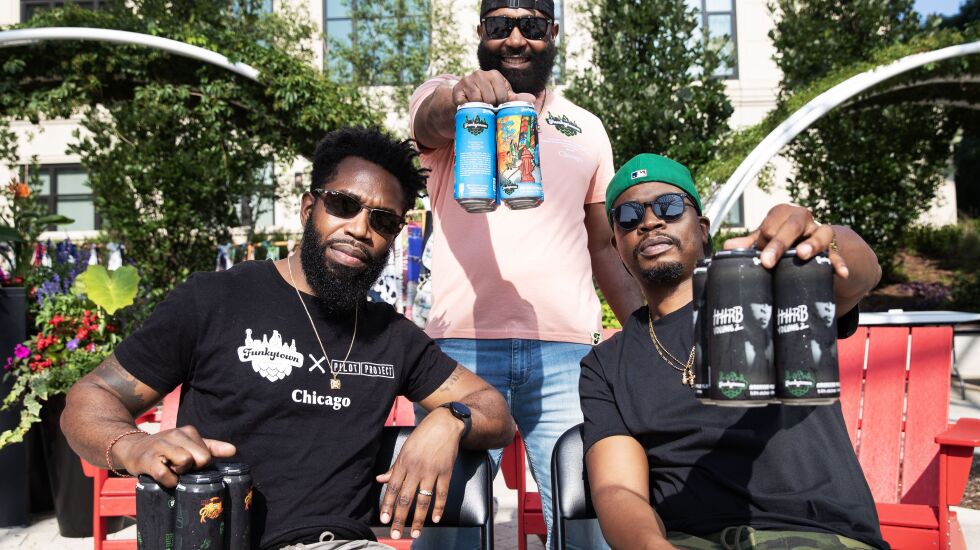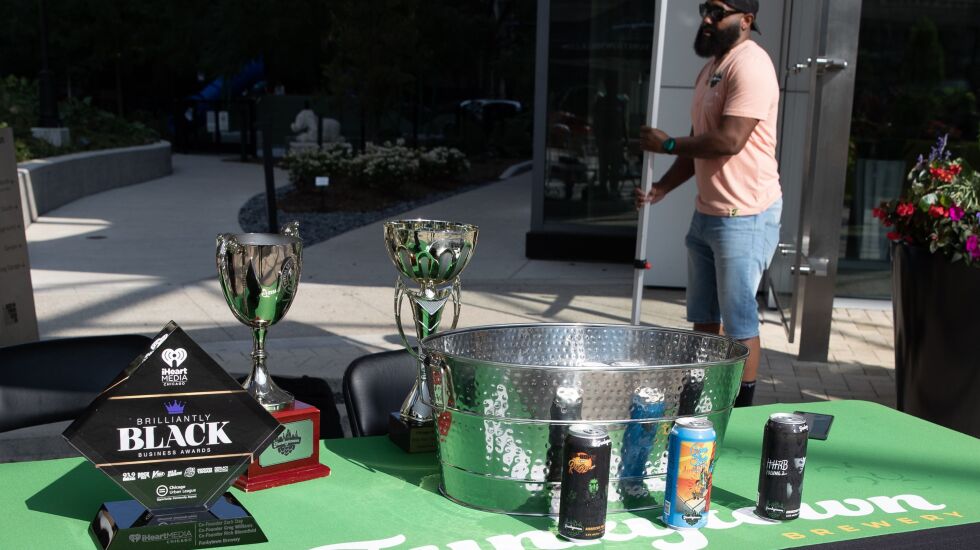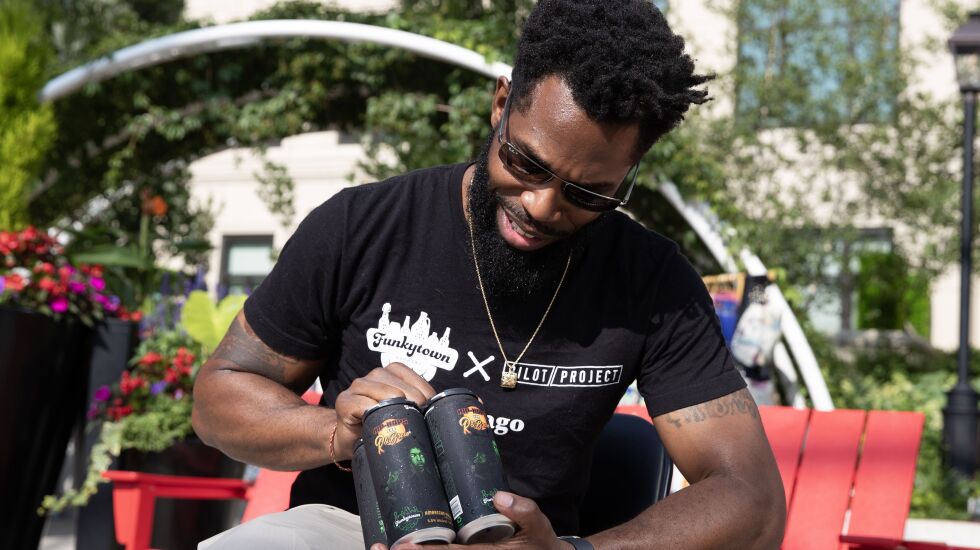
Chicago’s Funkytown Brewery, helmed by three lifelong friends from Oak Park, has emerged as the winner of the 12th annual Samuel Adams Brewing and Business Experienceship craft beer competition.
Fueled by their passion for ’90s hip-hop, devotion to their community and a shared love for craft beer, co-founders Rich Bloomfield, Zack Day and Greg Williams have transformed their humble beginnings into a flourishing beer business.
Day said the three friends were excited to learn they won the competition and see it as an opportunity to develop their brand and product while gaining national exposure.
“To actually have the owner of Samuel Adams, Jim Koch, drink your beer in front of you and tell you that he can smell the hops exploding, it was a surreal moment,” Day said, referencing the hops flower that’s typically used in the craft brewing process.
As part of the Samuel Adams Experienceship, the three friends will get mentorship, access to capital to U.S. food and beverage entrepreneurs, attend the Great American Beer Festival and develop a collaboration beer with Samuel Adams at the company’s Boston brewery.
Funkytown Brewery began in 2017 when the co-founders began taking brewing classes at Brew and Grow, a beer supply store. They went on to purchase their own brewing equipment and asked Day’s parents if they could use their garage to begin home brewing.
“As long as we gave them some beer and let them be the taste testers, they were cool with it,” Day said.

There was lots of trial and error learning to brew beer, Day said. The three often visited breweries, built connections with Chicago brewers and tried various craft beers to perfect their craft, even watching YouTube tutorials to learn more about the brewing process.
Their big break was in 2021 when they auditioned for a spot at Pilot Project Brewing, a brewery incubator with locations in Chicago and Milwaukee, and became one of the company’s partners, Bloomfield said.
The company launched their first beer, a pale ale named Hip-Hops and R&Brew, a few months later. Most of their products are a play on words that reference ’90s hip-hop and R&B, the music the three friends grew up listening to together, and other Black cultural images and sayings.

Bloomfield said when the three would go to craft beer shops, they did not see images representing Black communities on cans. Representation became an important part of Funkytown Brewery’s marketing and branding efforts.
The image on the can for Hip-Hops and R&Brew is inspired by the artwork for The Fugees’ album “The Score,” Bloomfield said. The artwork of the second volume of the beer is inspired by Mary J. Blige’s album “What’s the 411?”
“We just saw a lane out there for us to do the outreach and get craft beer to more diverse groups or underserved groups,” Bloomfield said.
Bloomfield said Funkytown Brewery’s target audience is primarily Black and Brown people, women and people across different intersections of gender identity, but they also target white men, who are commonly seen as the key craft beer consumer base.
“We want everyone to feel like they’re a part of Funkytown,” Williams said.
This year, Funkytown Brewery partnered with The Simple Good, a Chicago nonprofit that teaches youth social emotional learning through art, and raised about $40,000 for the organization, surpassing their initial goal of $35,000, Day said.
To date, Funkytown has developed 12 craft beers with products available in more than 500 locations in the Chicagoland area, including Jewel-Osco, Binny’s and Whole Foods. Their beers are also available at Pilot Project Brewing’s Milwaukee location and the craft beers will soon be available in northern Indiana, Bloomfield said.
Bloomfield, Day and Williams said they hope to focus on the business full-time — they all work other jobs outside of the brewery — and create a product that everyone sees themselves represented in. They see winning the Samuel Adams competition as a key step that allows them to continue to expand their company.
“Our first beer looked like beer but tasted like water,” Williams said of their first home brew. “Now we’ve actually won a competition and we’re going to get coaching from one of the top craft breweries in the nation. I’m very excited to start working with them. I know they’re going to help tighten our organization.”







